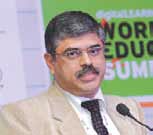Open access movement in higher education is the key for emergence of meta-university
 Dr K K Dwivedi
Dr K K Dwivedi
Vice Chancellor,
Apeejay Stya University
During the last 15-20 years new developments on the technological front have brought about major changes in the way we approach education.
Campus infrastructure is not only about physical boundary. It consists of manpower, faculty, student and staff along with physical infrastructures like the buildings, labs, classrooms hostels, housings, and other technological tools embedded into the system. We have features like teaching learning platforms through video conferencing, virtual classrooms, and much else.
As far as the manpower is concerned, faculty shortage is the most challenging task that we are faced with. Faculty doesn’t
drop down to us from tree tops; it takes decades of training to create an effective teacher. A good teacher who can face the challenges of higher education must be imbued with the six Cs: Competence, Creativity, Confidence, Caring, Collaborations and Communication. Unfortunately, most of the PhDs and teachers that are available these days are not employable because of the poor quality.
Nowadays most university campuses are ICT enabled. They are equipped with, intranet and internet. With the emergence of the National Knowledge Network one GBPS connectivity is available. Online access to books, journals, periodicals, and the learning management system which make the campus more efficient are coming up.
Meta-university will promote collaborative and multidisciplinary learning through the use of National Knowledge Network. The availability of open courseware and the emergence of open access movement in higher education is the key for emergence for meta-university.







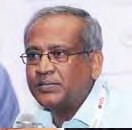 Prof Dilip K Bandyopadhyay
Prof Dilip K Bandyopadhyay
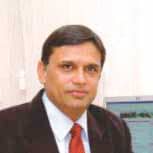



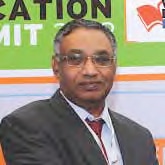
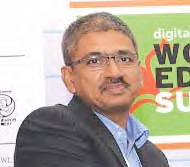 Nagendran S
Nagendran S